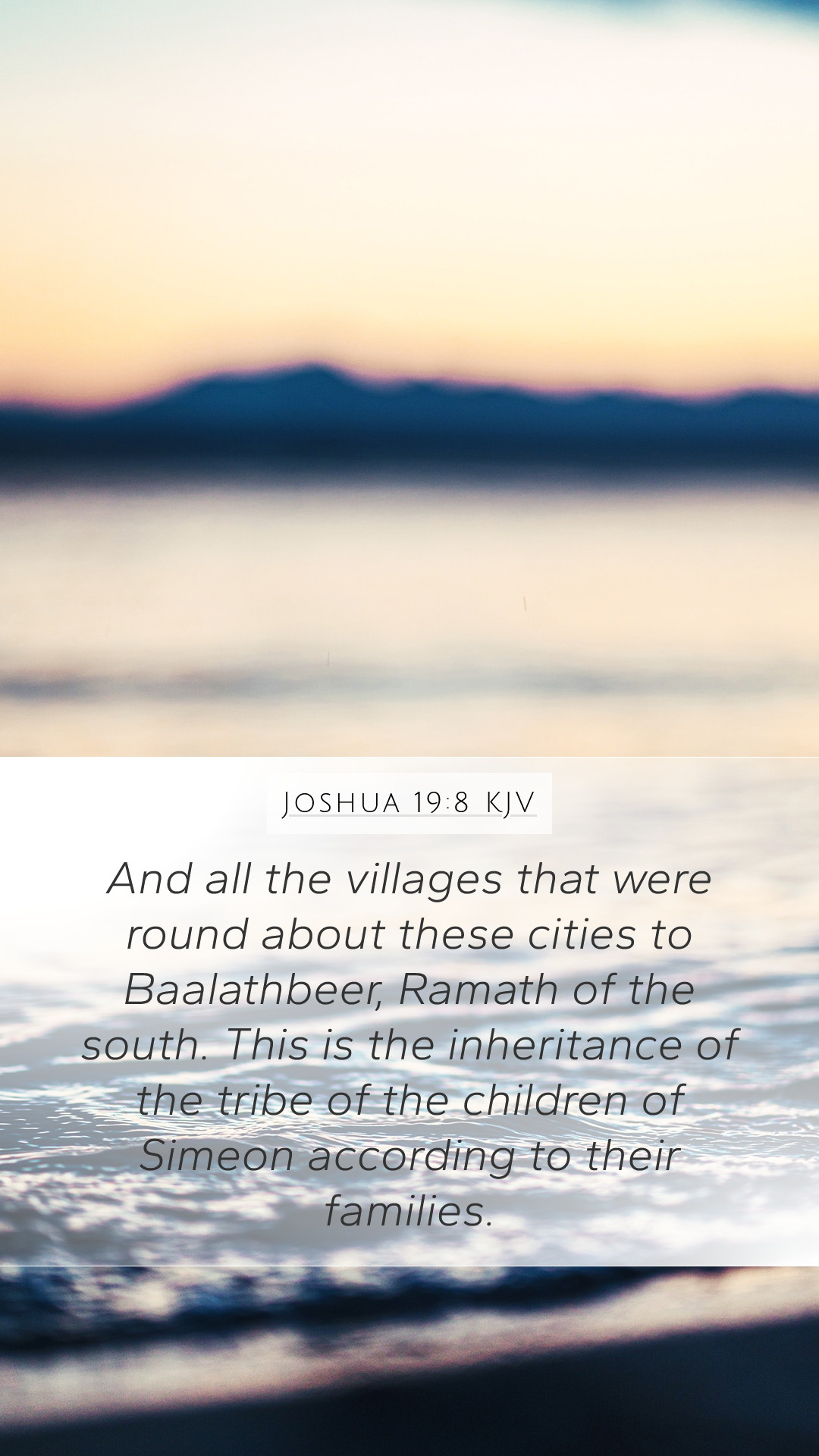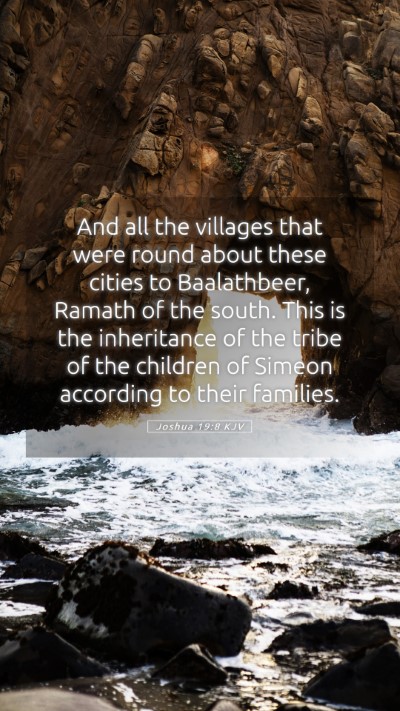Understanding Joshua 19:8
Joshua 19:8 states: "And the border went out from Tabor to Chanath, and the outgoings thereof were at Jabin.” This verse marks the territorial boundaries assigned to the tribe of Naphtali as part of the division of land in ancient Israel. The importance of this verse can be understood through several layers of Biblical exegesis and historical context.
Overview of the Verse
The phrase “the border went out from Tabor to Chanath” signifies the demarcation of inheritance for the tribe. Tabor refers to Mount Tabor, an important landmark in this region, while Chanath—or possibly "Kedesh"—indicates another significant site. The mention of borders is crucial as it relates to the allocation of land among the Israelites, a central theme in the Book of Joshua.
Significance of Geographical Boundaries
Understanding the geographical boundaries helps us appreciate the historical setting:
- Spiritual Heritage: The land distribution reflects God's promises to the tribes of Israel, providing a sense of identity and belonging.
- Covenantal Context: Each boundary symbolizes the faithfulness of God to His covenant with the Israelites.
Commentary Insights
Matthew Henry's Commentary
Matthew Henry emphasizes the providence of God in the land division, noting how every tribe received its appropriate share. The reference to Tabor is seen as significant because it was a renowned location, not just for its geography but for its role in Old Testament events.
Albert Barnes' Commentary
Albert Barnes provides a detailed analysis of the associated places mentioned. He points out that this verse is part of a broader narrative on how land was distributed and notes the strategic importance of the region mentioned.
Adam Clarke's Commentary
Adam Clarke further explores the cultural implications of land allocation. He suggests that such delineations fostered unity among the tribes while maintaining tribal distinction, an essential aspect of ancient Israelite society.
Applications and Implications
From this verse, several key applications can be drawn for modern readers:
- Identity in Faith: Just as the tribes found their identity through their land, believers find their identity through their relationship with God.
- Understanding Boundaries: Boundaries in life can represent God's guidance and protection over His people.
- Faithfulness to Promises: This verse teaches that God's promises are fulfilled in His time, which encourages believers to trust in God’s plans.
Cross References
Key related verses that provide additional context include:
- Joshua 12:24: Lists the kingdoms defeated by the Israelites, demonstrating God's power in securing their inheritance.
- Numbers 34:19-22: Details the leaders from each tribe designated to allocate territories, illustrating God's order in land distribution.
- Deuteronomy 33:23: Highlights Jacob’s blessing upon Naphtali, linking the land to divine favor.
Conclusion
Joshua 19:8 serves as a crucial passage in understanding the concept of territory and inheritance in the context of faith. The historical and spiritual layers provided through these commentaries enrich our understanding of how to interpret Bible verses accurately and apply their meanings to modern life. This study can serve as a resource for Bible study groups and anyone seeking deeper Bible study insights.


